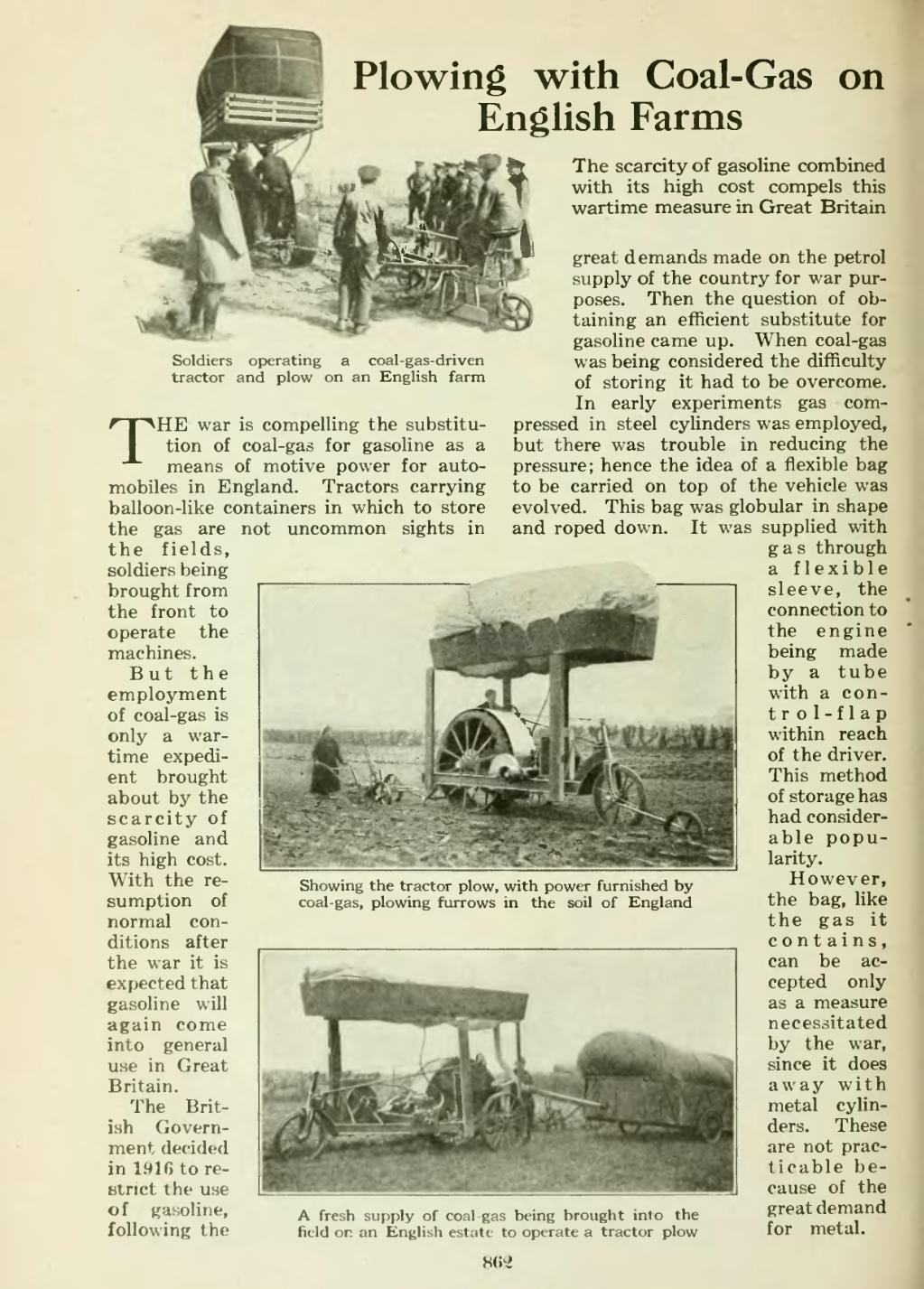�Plowing with Coal-Gas English Farms
��on
��Soldiers operating a coal-gas-driven tractor and plow on an English farm
THE war is compelling the substitu- tion of coal-gas for gasoline as a means of motive power for auto- mobiles in England. Tractors carrying balloon-like containers in which to store the gas are not uncommon sights in the fields, soldiers being brought from the front to operate the machines.
But the employment of coal-gas is only a war- time expedi- ent brought about by the scarcity of gasoline and its high cost. With the re- sumption of normal con- ditions after the war it is expected that gasoline will again come into general use in Great Britain.
The Brit- ish Govern- ment decided in mif) to re- strict the use of gasoline, following the
��s
��•^J
��■J
��S!i'... Ill- Uic tractor plow, with powci coal-gas, plowing furrows in the soil ot
���A fresh supply of coal-gas being brought into the field on an English estate to operate a tractor plow
��The scarcity of gasoline combined with its high cost compels this wartime measure in Great Britain
great demands made on the petrol supply of the country for war pur- poses. Then the question of ob- taining an efficient substitute for gasoline came up. When coal-gas was being considered the difficulty of storing it had to be overcome. In early experiments gas com- pressed in steel cylinders was employed, but there was trouble in reducing the pressure; hence the idea of a flexible bag to be carried on top of the vehicle was evolved. This bag was globular in shape and roped down. It was supplied with
gas through a flexible sleeve, the connection to the engine being made by a tube with a con- t r o 1 -f 1 a p within reach of the driver. This method of storage has had consider- able popu- larity.
However, the bag, like the gas it contains, can be ac- cepted only as a measure necessitated by the war, since it does away with metal cylin- ders. These are not prac- ticable be- cause of the great demand for metal.
���d by h-ngland
��802
�� �

